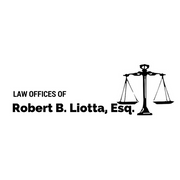Medicaid Planning Spend Down for Nursing Home Care

The average cost of nursing home care in PA is costly at $352.86/day as of January 1, 2020. If you or a loved one must be admitted to a skilled nursing facility, you can avoid spending a lifetime of resources on the associated costs and still have access to necessary long-term health care services by being approved for Long Term Care medical assistance through Medicaid. Medicaid (distinct from Medicare) is a hybrid public/private partnership where the state contributes the additional resources needed by the applicant to pay the monthly costs of skilled nursing care. Proper Medicaid planning is the key to ensuring eligibility to receive benefits from the program without completely exhausting your resources on the cost of skilled nursing care. If you or your loved ones want to qualify for Medicaid nursing home care, here’s what you need to know.
Medicaid Eligibility Requirements
In order to qualify for Long Term Care medical assistance through Medicaid, one must meet basic, medical, asset and income eligibility requirements. Basic eligibility considers age and disability status; Medical eligibility considers one’s ability to engage in Activities of Daily Living (or ADL); Asset eligibility requires that the applicant exhaust all non-countable assets in a legally acceptable fashion; and Income eligibility requires that one have insufficient monthly income to satisfy the costs of care.
Living (or ADL); Asset eligibility requires that the applicant exhaust all non-countable assets in a legally acceptable fashion; and Income eligibility requires that one have insufficient monthly income to satisfy the costs of care.
Countable vs. Non-Countable Assets
The first step in the process is to determine ‘countable’ vs ‘non-countable’ assets. Assets that you don’t need to sell or spend down to achieve eligibility for Medicaid are called non-countable assets. Some examples are your primary residence, household goods and personal effects, a certain amount of cash, a single car, prepaid funeral and burial arrangements and limited life insurance. Assets that you do need to spend down to achieve Medicaid eligibility are countable assets and include all assets not defined as non-countable assets.
What Is Medicaid Spend Down?
Medicaid Spend Down is the process by which one transfers their countable assets in a legally permissible fashion in order to qualify for Medicaid. If you don’t meet the asset eligibility criteria designated by Pennsylvania, you won’t be eligible for Medicaid. Asset eligibility can be accomplished by either spending all of your income and assets on the monthly costs of nursing home care until you have nothing left or transferring your assets in a legally permissible fashion. A Medicaid Planning attorney assists clients in developing plans which provide for a legally permissible divestment of assets while still maintaining Medicaid eligibility. This allows the applicant to preserve their assets for the benefit of third parties (traditionally one’s spouse or children although not limited to these individuals) in lieu of exhausting their resources in satisfaction of the monthly nursing home bill.
Why Can’t I Just Give Everything to My Spouse or Children to Qualify for Medicaid?
A penalty period will be imposed if one transfers assets in violation of Medicaid transfer rules and all transfers within the 60 months prior to application will be considered.
Medicaid rules are complicated and working with a lawyer who is knowledgeable in Medicaid planning will ensure valid asset transfer and Medicaid qualification. The Law Offices Of Robert B. Liotta, Esq. in Lower Burrell, PA, is determined to help you restructure your assets for Medicaid spend down when you need to be admitted to a nursing home. They’re also the law firm you can trust when you need legal assistance for estate planning and probate. Call (724) 334-9870 to get started with your Medicaid planning or visit their website to review services.
About the Business
Have a question? Ask the experts!
Send your question

